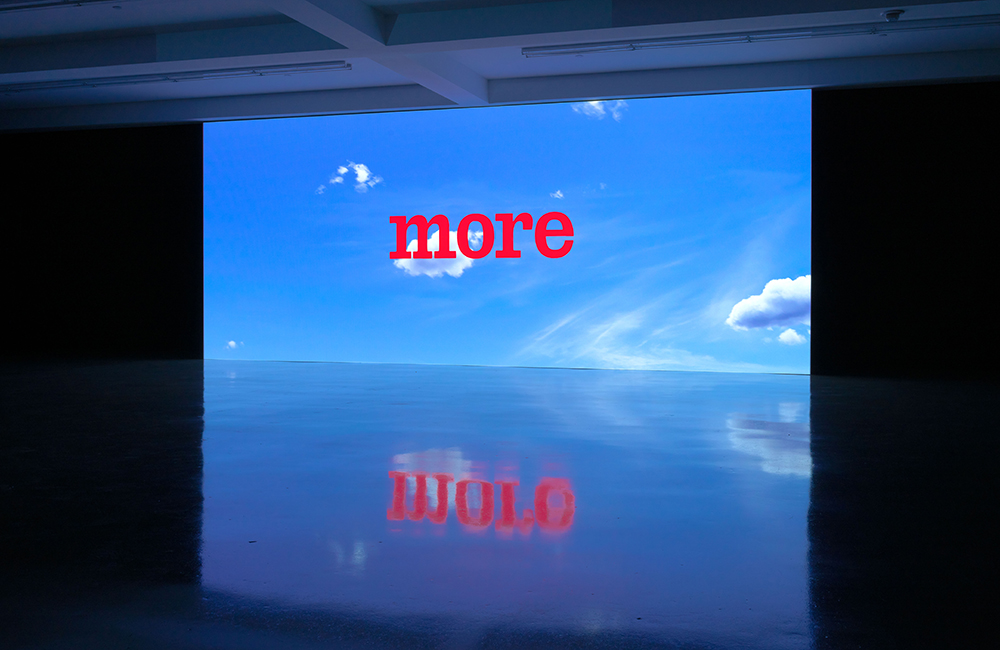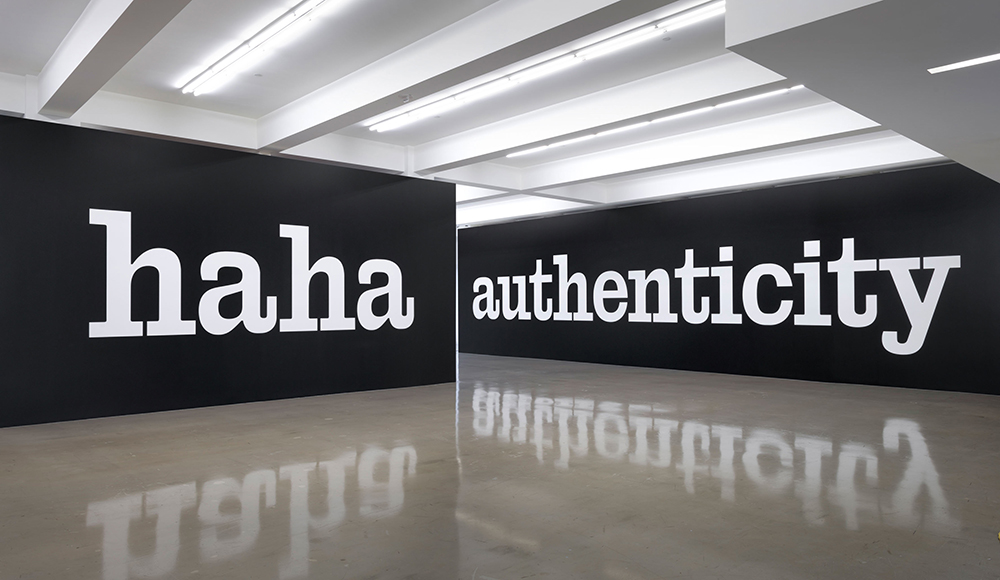“Self is source. Self is pure positive energy. Self is worthy. Self is full of vitality. Self is healthy. Self is eager about life. Self is amazing.” One might imagine this incantation spoken in a low, meditative tone, as though by uttering the words with enough intention the speaker might manifest this vision in their own life. But artist Nora Turato chirps the staccato affirmations quickly, her cadence upbeat, like that of a motivational speaker selling you on tools to transform you—finally—into someone who can “get to [their] ultimate destiny.”
Critically, that destiny and those tools are never disclosed in Turato’s 47-minute video pool 6 (all works 2024), which occupied one half of the two-room exhibition “it’s not true!!! stop lying!” at Sprüth Magers. Instead, she sutures plaintive cries for healing, hackneyed wellness jargon and interrogations of selfhood into a sweeping monologue, which was present both as large red subtitles and as audio, her caricatured voice booming throughout the space.
Like pool 6, Turato’s text-based enamel wall works and murals distill an affective mode prevalent in recent years: that of the wellness aspirant. One enamel-on-steel work reads in blocky red lettering “I NEED SOME HEALING.” Another wall-spanning piece reads “speaking my TRUTH!!!” Each is composed solely of text on a monochromatic ground, employing scale and capitalization to register a frantic tone. Much of Turato’s text sounds confessional, but the phrases appear without context, like floating signifiers awaiting a subject to adhere to.

Nora Turato, pool 6, 2024. Photo: Robert Wedemeyer. © Nora Turato. Courtesy of the artist, LambdaLambdaLambda, Galerie Gregor Staiger and Sprüth Magers.
Such anxieties about authenticity, healthfulness and personal achievement channel the market consciousness of a $5.6 trillion wellness industry. The artist appropriated her text from films, online forums, motivational talks and ad copy. Turato arranged the resulting pool of language in a book, which she then edited into monologues for her videos and performances, enamel panels and murals. Rather than offering viewers a glimpse into the private consciousness of another, she ventriloquizes the afflictions and affirmations that structure the wellness market’s faddish vocabulary.
Turato’s anti-lyricism is furthered by the works’ industrial aesthetic. Made of steel, vitreous enamel and emulsion paint on sometimes billboard-level scales, Turato’s works are not intimate, despite their emotional tenor. Instead, they suggest that the language of self-optimization pushes in on us by way of contemporary marketing strategies, infiltrating not only our speech but our innermost feelings as well.
One might feel superior to the anxious desperation voiced by the more plaintive of these works. Others are ironic and detached in tone, such as authenticity haha, in which the titular words emblazoned large-scale walls at the gallery’s entrance as if inviting viewers in on a joke. And in pool 6, Turato’s magnificent performance at times can seem spiteful. But at the same time, as she estranges and thus critiques the idioms of an industry profiting from personal and social ailments, she mirrors some of its allure. Backgrounding the text in pool 6, clouds move in real time through a pale blue sky. Viewers were drawn into the video’s atmosphere, its heavenly image mirrored by the shiny floor below as though beckoning interlopers to enter its space. Once you’re in, it’s hard to exit.


